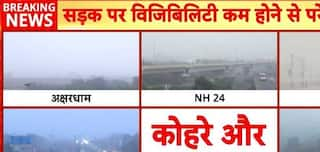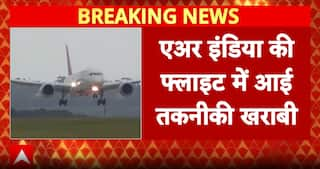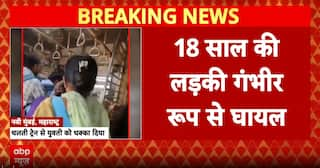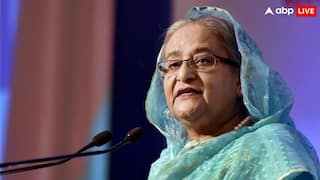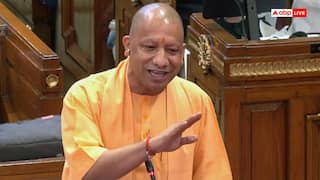Tax Structure In India: How Many Types Of Taxes? What Are They? Explained
Tax Structure In India: The Indian tax system, known for its well-structured three-tier federal framework, encompasses taxes levied by the Centre, states, and local municipal bodies

Taxes form the backbone of government revenue, playing a crucial role in funding various developmental projects and ensuring the nation's progress. The Indian tax system, known for its well-structured three-tier federal framework, encompasses taxes levied by the central government, state governments, and local municipal bodies.
The Indian Tax Structure
The tax structure in India is bifurcated into two primary types: direct taxes and indirect taxes.
Direct Taxes
Direct taxes are levied on the income and profits of individuals and corporate entities. These taxes are non-transferable, meaning the responsibility for payment lies directly with the taxpayer. Key direct taxes include:
Income Tax: This tax applies to the income of individuals, Hindu Undivided Families (HUF), and other entities, excluding capital gains and business profits. The Income Tax Act of 1961 mandates that individuals with annual income above a specified limit must pay income tax. Taxpayers can avail benefits under various sections of the Act to reduce their taxable income.
Capital Gains Tax: Imposed on the profits from the sale of capital assets, capital gains tax is categorised into short-term and long-term based on the holding period of the asset. Short-term capital gains arise from assets sold within a specified period, while long-term gains pertain to assets held beyond this period. The tax rates vary accordingly, and long-term gains often benefit from indexation, which adjusts for inflation.
Corporate Tax: Corporates and entities filing returns as companies are subject to corporate tax. The tax rates vary based on the turnover and other criteria outlined by the government.
Indirect Taxes
Indirect taxes, on the other hand, are levied on goods and services. These taxes are collected by businesses and service providers from the consumers, who bear the ultimate tax burden. Significant indirect taxes include:
Goods and Services Tax (GST): GST is a comprehensive indirect tax levied on the manufacture, sale, and consumption of goods and services at the national level. It has replaced multiple indirect taxes previously levied by the central and state governments, creating a unified taxation system.
Customs Duty: This is a tax imposed on goods imported into India, aimed at regulating the flow of goods and protecting domestic industries.
Excise Duty: Levied on the manufacture of goods within the country, excise duty is collected by the central government.
Service Tax: Applicable to the provision of services, this tax is collected by service providers from the service recipients.
Roles of Different Government Bodies in Taxation
India's federal structure delegates the power to impose taxes to various levels of government:
Central Government: Responsible for levying customs duty, central excise duty, income tax, and service tax. The central government’s tax policies are crucial in maintaining economic stability and funding national projects.
State Governments: State authorities impose taxes such as state excise duty, professional tax, land revenue, and stamp duty. They also collect income tax on agricultural income, which is a significant revenue source for agrarian states.
Local Municipal Bodies: Local governments are authorised to collect property tax, octroi, and taxes on services like water and drainage supply. These taxes fund local infrastructure and public services.
Key Aspects of Direct Taxes
Income Tax
Income tax is a vital direct tax for individual taxpayers. The tax is calculated based on income slabs announced by the central government in the annual budget. These slabs vary according to income levels and age, with provisions for tax-saving investments and expenses under section 80C of the Income Tax Act.
Capital Gains Tax
Capital gains tax is crucial for individuals and businesses dealing in capital assets. The tax distinguishes between short-term and long-term gains, with specific holding periods and tax rates. For instance, selling equity stocks within 12 months incurs short-term capital gains tax, while selling them after 12 months incurs long-term capital gains tax, often with indexation benefits.
Corporate Tax
Corporate tax applies to businesses based on their turnover and profitability. The government periodically revises tax rates and slabs to align with economic policies and promote business growth.
Challenges and Developments in the Tax System
India's tax system, while comprehensive, faces challenges such as tax evasion, complexity in compliance, and administrative inefficiencies. To address these issues, the government has introduced several reforms:
Digital Tax Filing: Encouraging digital tax filing and online payment systems to simplify compliance and enhance transparency.
GST Implementation: The introduction of GST has streamlined indirect taxation, reducing the cascading effect of multiple taxes and creating a more business-friendly environment.
Tax Incentives: Offering various tax incentives and deductions to promote investments in sectors like infrastructure, renewable energy, and start-ups.
The tax system, with its intricate structure and multiple layers, plays a pivotal role in the nation's economic development. By understanding the different types of taxes and their implications, taxpayers can better navigate their financial responsibilities and contribute to the country's growth. Continuous reforms and technological advancements are essential to address existing challenges and ensure a more efficient and equitable taxation framework.











